Ruins of a Florida Empire...
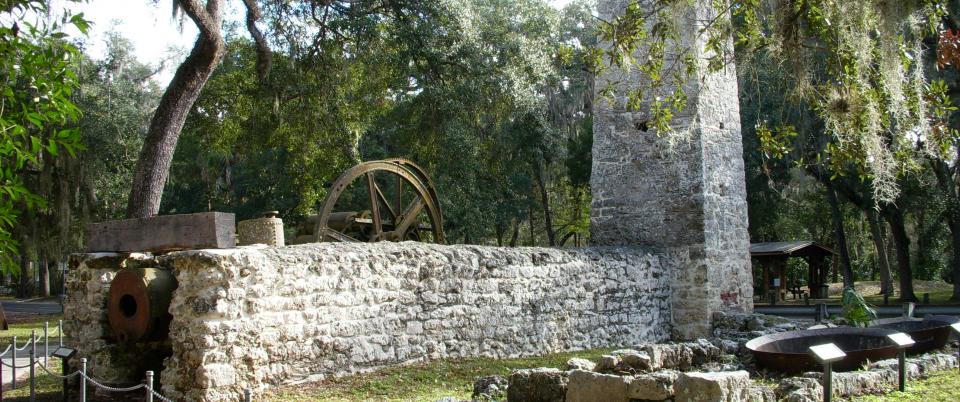
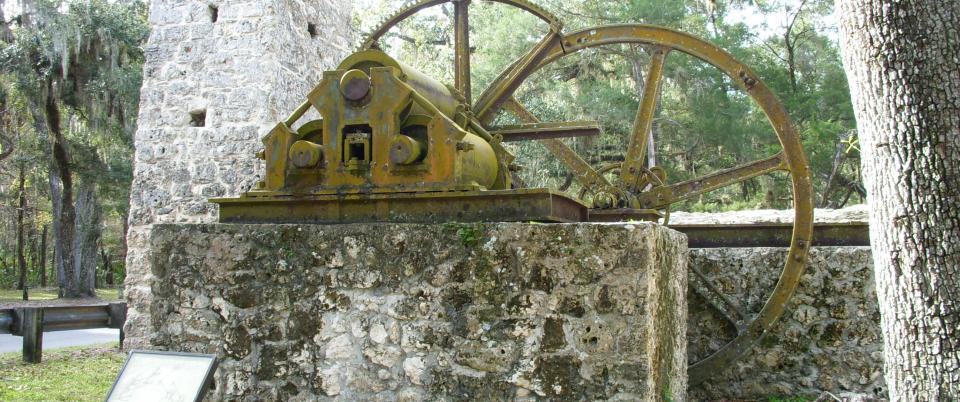
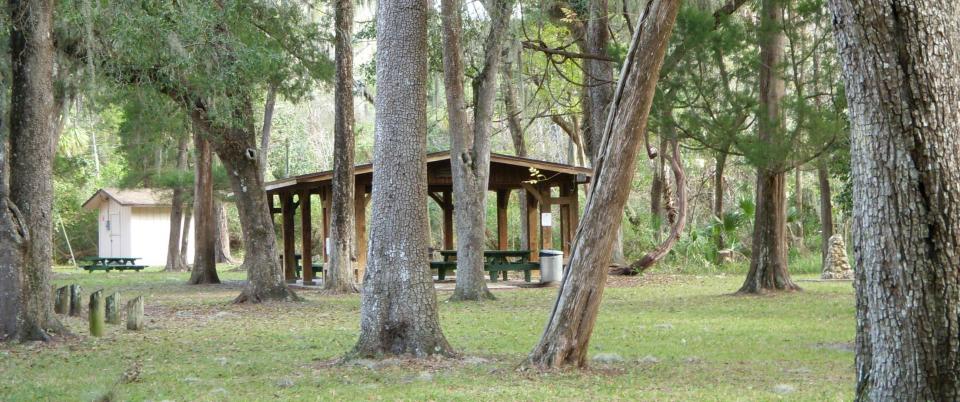
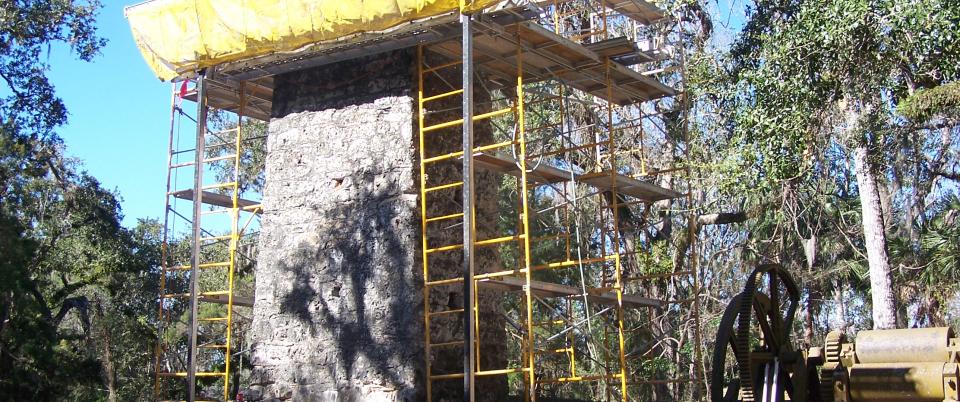
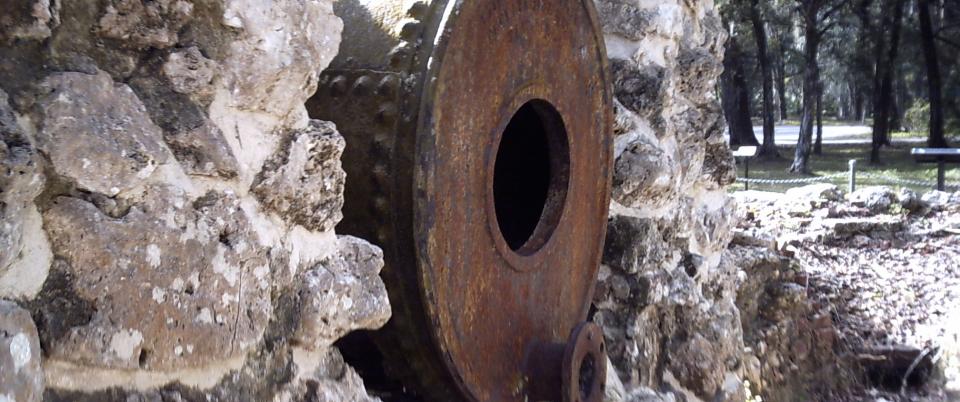
The Yulee Sugar Mill Ruins Historic State Park in Homosassa preserves a small reminder of the once remarkable empire of David Levy Yulee, Florida's first United States Senator.
Although he owned tens of thousands of acres of plantation land in Florida, Yulee picked the Homosassa River area north of Tampa Bay on the Gulf Coast as his primary residence. His 5,100 acre sugar plantation there was called Margarita and was managed from a home on nearby Tiger Tail Island (just downstream from present-day Homosassa).
Yulee also owned vast lands across North Central Florida and maintained other homes in Fernandina and what is now Yulee. In addition to his planting and political interests, he was a visionary entrepreneur who saw the benefits of a cross-Florida railroad that would link Cedar Key on the Gulf Coast with Fernandina on the Atlantic. Completed on the eve of the Civil War, the railroad provided a quick and easy way for cargo to be moved across the peninsula rather than around Cape Florida by ship.
The Yulee Sugar Mill began operating in 1851 to process the sugar cane grown by Yulee in the rich lowlands along the Homosassa River. The machinery was brought in by ship from New York and included a state of the art steam engine which drove the grinding machinery.
Using the labors of 69 slaves, Yulee built the mill of hewn Florida limestone, brick and wood. In addition to the steam-operated grinding or pressing rollers, it also included large kettles for cooking down the juice squeezed from the sugar cane.
By the time of the Civil War, the Yulee Sugar Mill was employing the labors of more than 100 slaves when in full operation. Sugar was exported from the Homosassa River to ports all along the Gulf and Atlantic Coasts.Elected to the U.S. Senate again in 1855, Yulee was serving in Washington when the clouds of the Civil War loomed over the nation. He attempted to aide his home state by securing information on the quantity and type of military stores housed in Florida's forts and arsenals and, in a move that drew the ire of Northern officials, urged the seizure of the U.S. Arsenal at Chattahoochee by state troops.
Resigning his post in the U.S. Senate, Yulee went home to Florida. Although he served for a time in the Confederate Congress, his primary role during the Civil War was as a businessman and industrialist. His railroad was brought into operation in March of 1861 and the sugar mill on the Homosassa was devoted to the production of sugar for the Confederate armies.
In May of 1864, the Union navy made a raid up the Homosassa River to Tiger Tail Island after being fired upon by Confederates there. A building containing Southern military supplies was set on fire and the flames spread to Yulee's home. In their reports of the affair, U.S. Navy officers gave the "accidental" burning of the Senator's home a light-hearted treatment.
The mill escaped damage in that raid, but fell into ruin after the Civil War. Partially restored,
it is now the center-piece of the picturesque little Yulee Sugar Mill Ruins Historic State
Park. To reach the park from U.S. 19 at nearby Homosassa Springs, turn west onto
Yulee Road and follow the brown and white signs 2.5 miles to the park, which is free to
visit.
